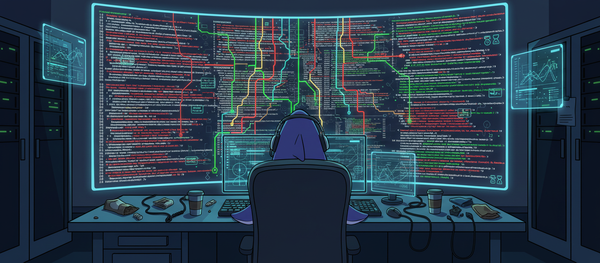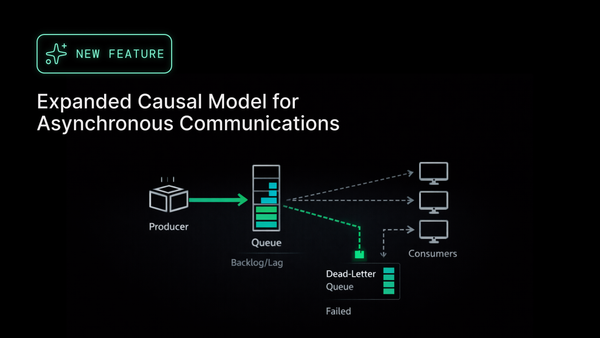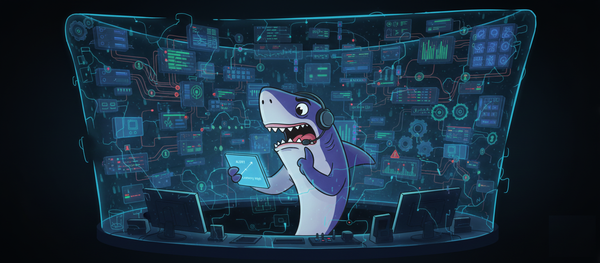Building a Reasoning Platform, Together

A version upgrade. A schema change. And suddenly, a critical service stalls. MySQL 8’s hidden metadata locking behavior has tripped up even the most prepared teams. We captured this knowledge — and now, Causely can pinpoint it.
If you’ve learned about how Causely works, you already know that our Causal Reasoning Platform includes a built-in causal knowledge base. This knowledge base guides system behavior by capturing the potential root causes in your environment and the symptoms they may cause. We are constantly exploring ways to expand that knowledge base, and one key source of inspiration for this is the work we do in the real-world with real users of our platform.
One of the most rewarding parts of my job is collaborating with awesome engineers who understand the value of our system and share ideas with me about how to make it better. Every customer scenario we encounter strengthens this knowledge base as we work through a four-step process:
Learn: Understand the root causes and observable symptoms of the scenario
Generalize: Capture the root causes and symptoms in the causality knowledge base
Implement: Develop the mediation to discover and monitor the required information
Deploy: Apply broadly and help all users benefit from this added knowledge
Whether it’s a metadata lock cascade in MySQL 8 or a Kubernetes resource noisy neighbor, this collaborative approach ensures that when one team faces a problem, the entire community can benefit from the expansion of our knowledge base. The following article is one such example of how this all played out in the real world with a real customer.
Modern Database Upgrades Can Be Painful
Last month I had a discussion with one of the engineering leaders at Yext, Peter Rimshnick. We explored a challenge many teams face: unexpected database locking in MySQL 8. Peter shared an incident where a routine schema change caused a bit of unexpected downtime. It turns out this scenario was tied to MySQL 8’s nuanced metadata locking behavior.
Metadata Locking in MySQL 8: What Changed?
MySQL 8 introduced critical improvements, but one underappreciated in their locking mechanism impacts teams daily. Before MySQL 8, A DDL statement (e.g., ALTER TABLE) locked only the target table. In MySQL 8, DDL operations now extend metadata locks to tables linked by foreign keys.
Imagine this scenario:
A Migration Runs: A DROP COLUMN on the users table requests an exclusive MDL.
Dependencies Ignited: MySQL 8 locks the profiles table (linked via foreign key).
Queries Back Up: Reads/writes on both tables time out after lock_wait_timeout.
Symptoms Spread: APIs fail, dashboards freeze, teams chase false leads.
The Hidden Cost: Engineers manually trace foreign keys; customers see unrelated errors.
How Can Causely Help
Causely discovers dependencies such as users ↔ profiles, and observes how clients interact with the tables. Based on the symptoms it detects, it infers that the root cause is the DDL Locking during the database migration.
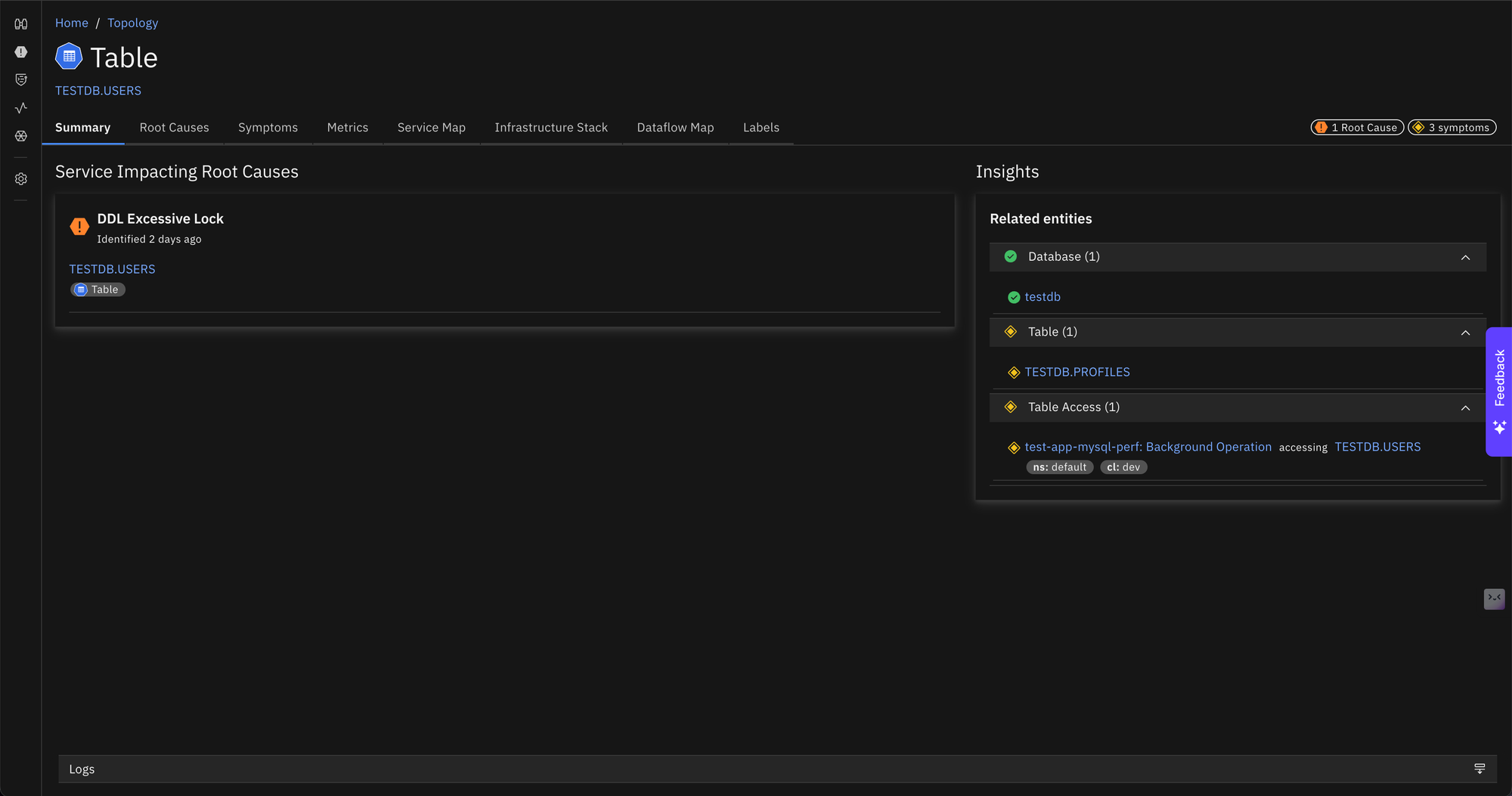
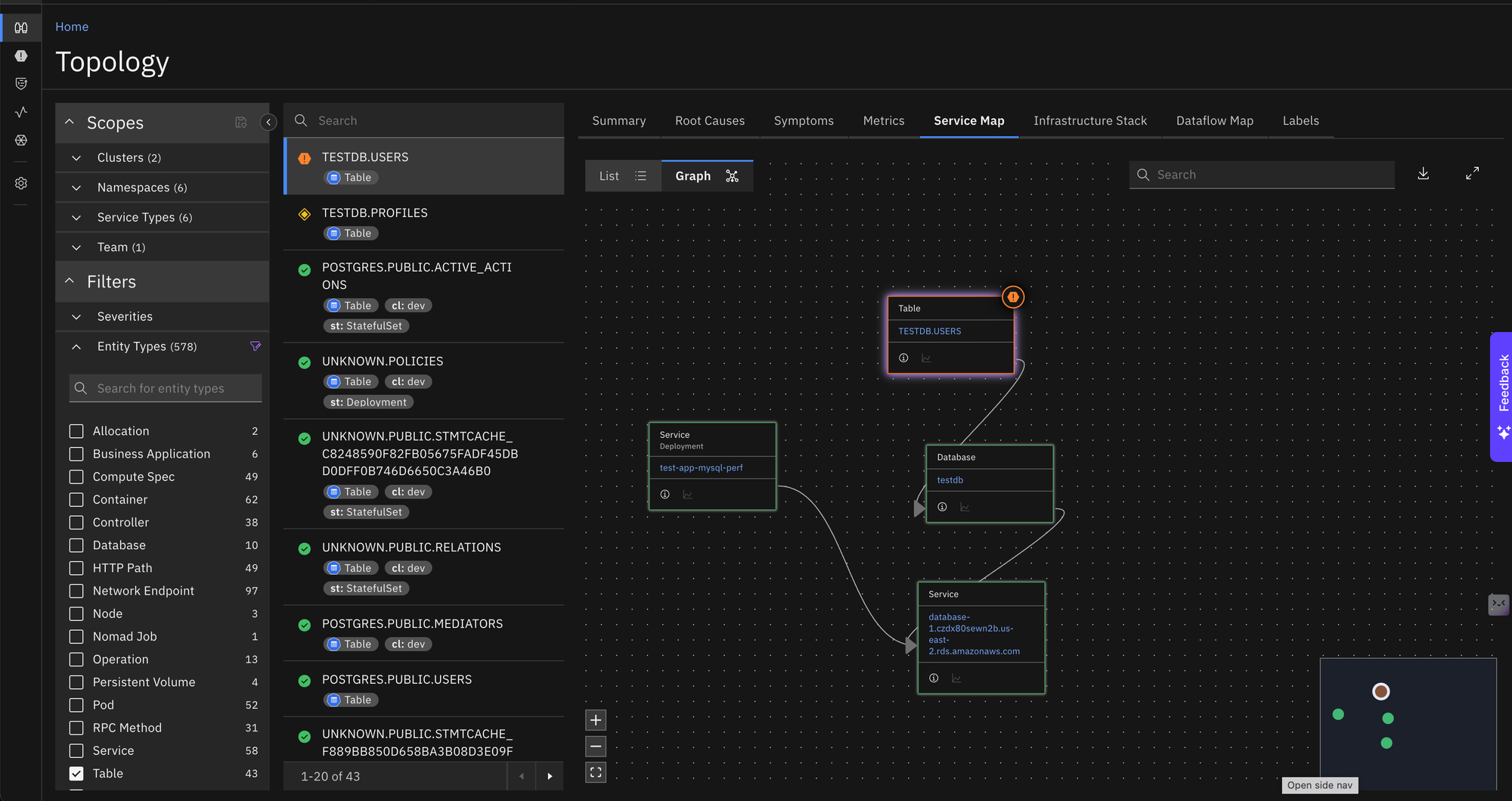
Our platform can now infer root causes like DDL locking based on observed symptoms:
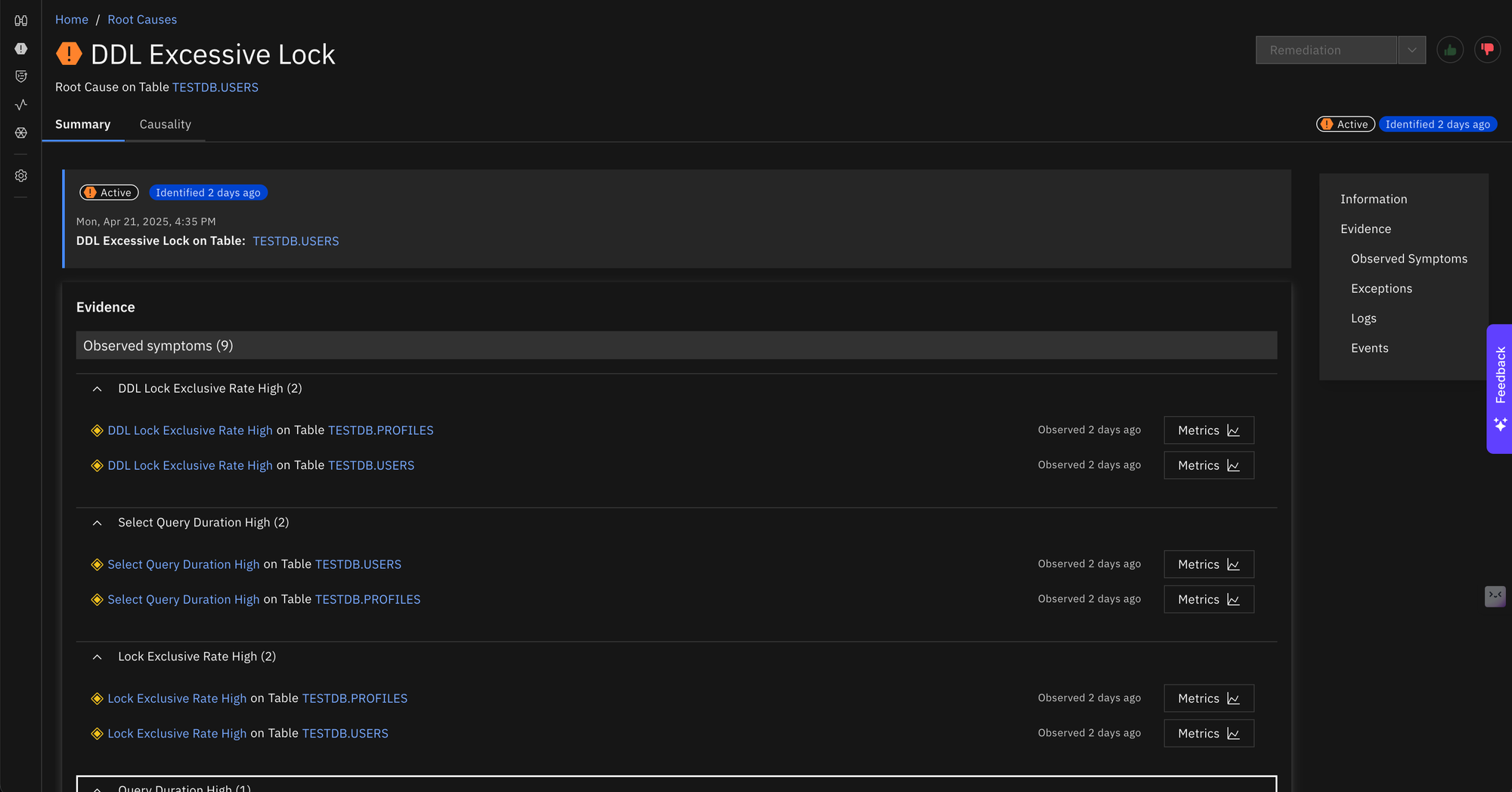
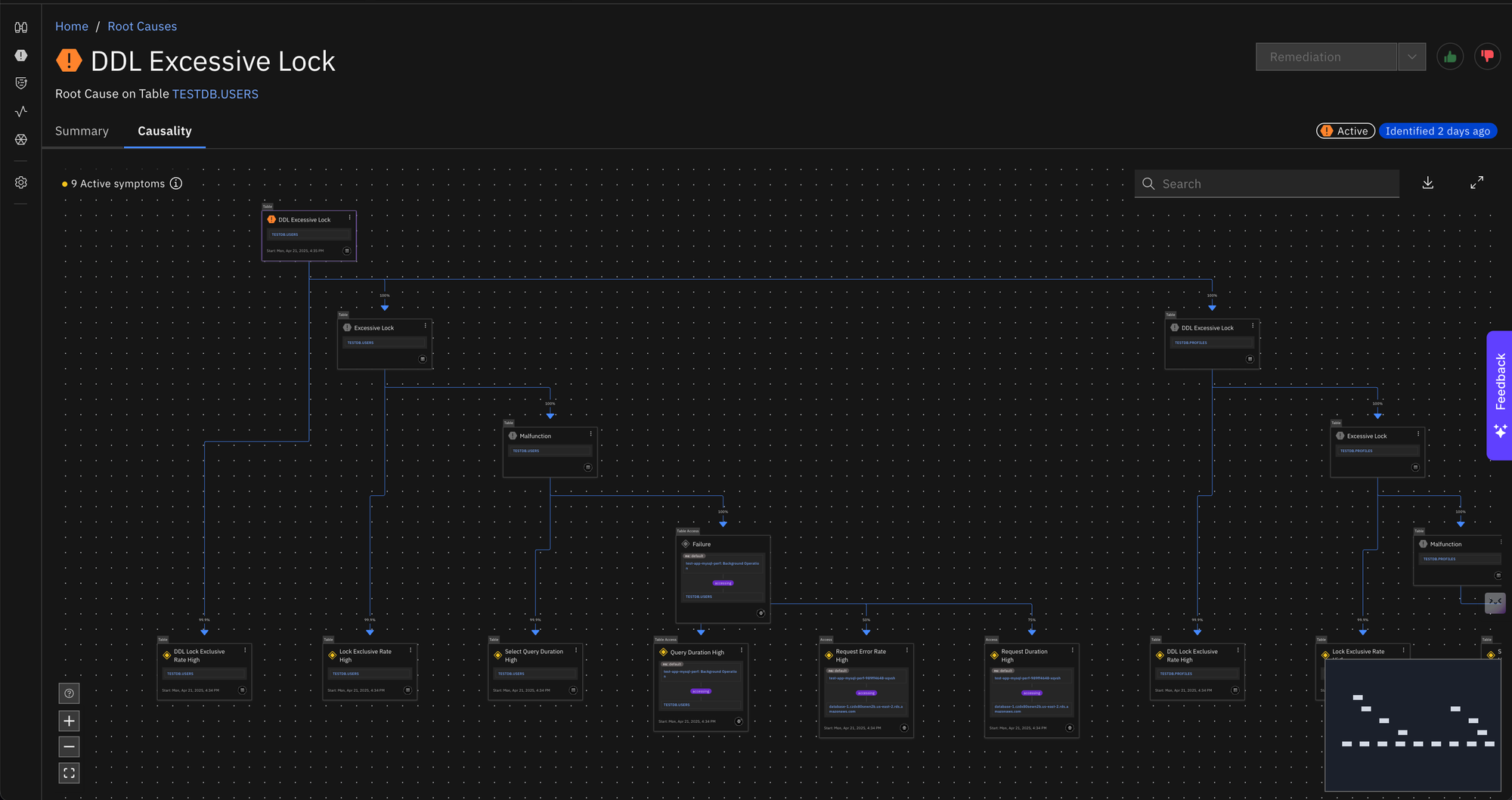
With Causely’s automated “DDL Excessive Lock” detection, engineers instantly pinpoint stalled schema changes—no more manual foreign-key tracing. This MySQL metadata-locking is just one of the many root causes we deliver out of the box. Explore the full library of insights to see how Causely can help you build reliable, resilient data pipelines.
The Network Effect of Shared Learning
This is how modern observability evolves: real problems solved once, scaled to many. Every collaboration like Yext’s isn’t just a fix; it’s a force multiplier that makes the platform more knowledgeable and eliminates manual troubleshooting. Every new root cause we learn from strengthens the entire platform. Join a community of engineers building a smarter, more resilient future.
For engineers tired of playing whack-a-mole with outages:
- Learn more about Causely
- See Causely in action: Request a demo
